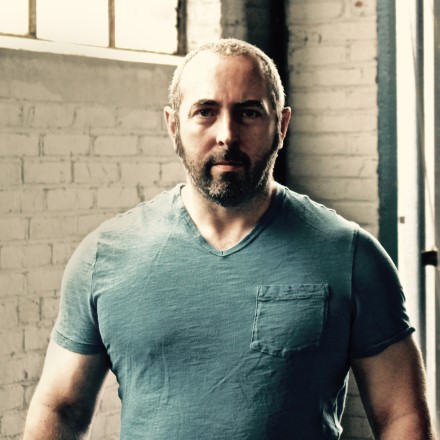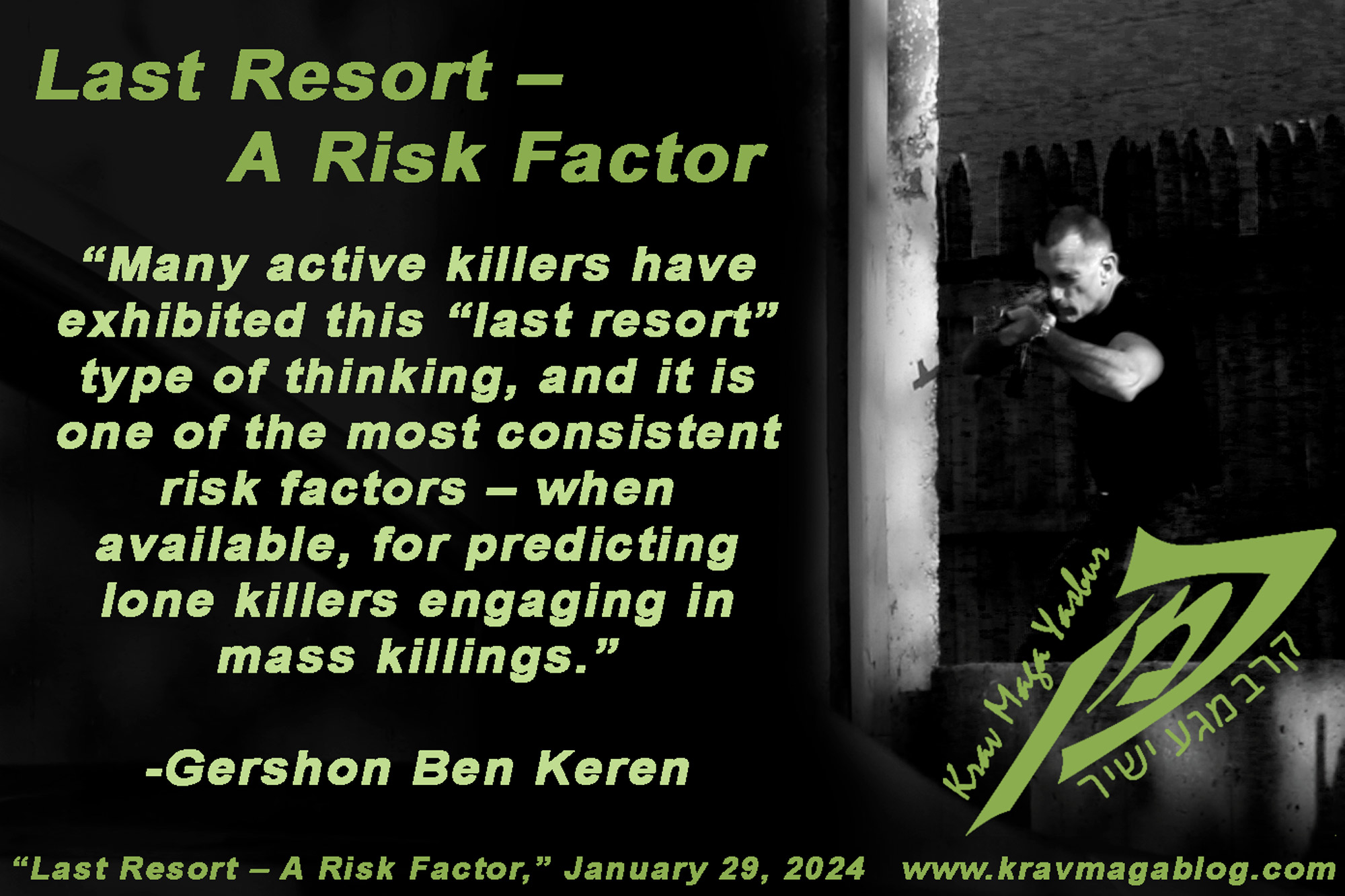The Virginia Tech active shooter, Seung-Hoi Cho, like many other killers who engage in rampage killings in educational settings left a “manifesto”. In it he stated, “You forced me into a corner and gave me only one option. The decision was yours. Now you have blood on your hands that will never wash off.” Cho like many other mass killers, believed that he had run out of options and there was only one left to him i.e., to engage in a rampage killing. It would be easy to view this explanation as the work of someone trying to justify actions and behaviors that they knew were wrong, but this would be simplistic reasoning. Many active killers have exhibited this “last resort” type of thinking, and it is one of the most consistent risk factors – when available (Cho’s manifesto only became available after his murder-suicide spree) – for predicting lone killers engaging in mass killings, whether they are depressed, isolated individuals like Cho or lone-wolf terrorists (self-motivated individuals like the Oklahoma Bomber, Timothy McVeigh, who didn’t belong to any organized group). The first school shooting of 2024 (4th January), saw a 17-year-old kill one and injure six more, at Perry High School, in Des Moines, Iowa when they returned to school from the winter break. Whilst this is unfortunately unlikely to be the last such event of the year, it is worth getting a better understanding of how “Last Resort” factors, can be used to evaluate the rising risk of an individual who might be contemplating engaging in a similar active shooter incident.
The idea of “Last Resort” was first suggested by Meloy et al., in 2012. The research identified eight factors that signaled an acceleration and increase in risk, with “Last Resort”, actions and behaviors being a significant predictor that an individual was contemplating an act of mass violence. Further research has found it to be one of the most consistent predictors, concerning acts of mass killing and violence, from Timothy McVeigh to Elliot Rodger. Before the Oklahoma Bombing, McVeigh wrote an Op-ed piece for his local neighborhood stating in it, “Is civil war imminent? Do we have to shed blood to reform the current system? I hope it doesn’t come to that, but it might”. Leading up to the bombing he gave away personal possessions to his sister and in a letter to her stated, “Who else [but a private citizen] would come to the rescue of those innocent women and children at Waco!?! Surely not the sheriff or the state police! Nor the army…I’m no longer in the propaganda phase…Now I’m in the action stage.” Elliot Rodger uploaded a video to YouTube that contained his “manifesto”. In it he stated that, “I didn’t start this war…but I will finish it… finally at long last I can show my true worth.” McVeigh was protesting federal government overreach, and Rodger, was punishing the popular, good-looking people who were enjoying active sex lives; something he was not. Rodger is often looked up to and heralded as a hero by “Incels” i.e., involuntary celibates – those who are angry and feel an injustice at the fact that though they want to be in active sexual relationships they are unable to do so. Both McVeigh and Rodger believed that they had no other choice but to engage in their acts of violence. To them the world/circumstances had backed them into a corner which compelled them to engage in acts of mass killing – this was their last resort. They may have believed, prior to reaching this conclusion, that there may have been better options for them, but at some point, those disappeared, and the only option left open to them was to engage in an act of mass violence. They may at first feel that being cornered is a negative thing, wishing that they had been able to take better choices earlier etc., however they may feel energized now that they can focus on acting rather than weighing up options and engaging in decision making. This often results in time being imperative i.e., they have an urgency to act.
When an actor has started to engage in last resort thinking patterns the only thing that starts to mean anything is the act of violence itself e.g., someone who once closely followed a sports team may stop paying attention to that team’s performance/result, because this has no relevance to the event they are fantasizing about, thinking, and planning etc. Losing interest in the things that once made them happy, without replacing them with other things that bring them joy, may mean a person is fixating on a private thought, which is all consuming. There may also exist physical manifestations, that can act as warning signs e.g., a person may stop or reduce eating, washing and/or engaging in other acts of hygiene; someone who once cared about their appearance may stop caring etc. Someone who once slept well or a lot may spend less time doing so; this may be for both psychological and practical reasons e.g., they need to spend more time thinking about and planning their actions. A person who was once conservative with their money may become reckless with it e.g., going to casinos and placing large bets etc. Perhaps one of the most significant last resort acts is giving away possessions and wanting people to have things that they once valued. This is something which is often common amongst those planning a suicide, and there is often an overlap between the actions and behaviors of those contemplating ending their life, and those engaging in acts of mass violence, which are likely to end in their death; either at their own hands, or by the actions of law-enforcement.
Last resort behaviors should never be seen as warning signs when they happen in isolation e.g., there may be individuals who are giving their possessions away as part of a “spring cleaning” drive rather than because they’re planning an act of mass violence. These actions and behaviors become warning signs when there is no apparent reason for them, and when they cluster together with others. We should understand that our natural tendency when we see them is to rationalize them rather than investigate and analyze them, as we naturally deny and discount the possibility of potential violent events. This is something we need to fight against whilst at the same time making sure that we continue to treat the person we are concerned about with dignity and respect.
Share:

Gershon Ben Keren
2.8K FollowersGershon Ben Keren, is a criminologist, security consultant and Krav Maga Instructor (5th Degree Black Belt) who completed his instructor training in Israel. He has written three books on Krav Maga and was a 2010 inductee into the Museum of Israeli Martial Arts.
Click here to learn more.

